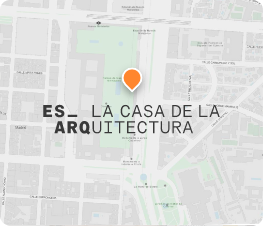Loading...
Diébédo Francis Kéré
- ABOUT Pritzker
- Pritzker 2022
- Pritzker 2021
- Pritzker 2020
- Pritzker 2019
- Pritzker 2018
- Pritzker 2017
- Pritzker 2016
- Pritzker 2015
- Pritzker 2014
- Pritzker 2013
- Pritzker 2012
- Pritzker 2011
- Pritzker 2010
- Pritzker 2009
- Pritzker 2008
- Pritzker 2007
- Pritzker 2006
- Pritzker 2005
- Pritzker 2004
- Pritzker 2003
- Pritzker 2002
- Pritzker 2001
- Pritzker 2000
- Pritzker 1999
- Pritzker 1998
- Pritzker 1997
- Pritzker 1996
- Pritzker 1995
- Pritzker 1994
- Pritzker 1993
- Pritzker 1992
- Pritzker 1991
- Pritzker 1990
- Pritzker 1989
- Pritzker 1988
- Pritzker 1987
- Pritzker 1986
- Pritzker 1985
- Pritzker 1984
- Pritzker 1983
- Pritzker 1982
- Pritzker 1981
- Pritzker 1980
- Pritzker 1979
What is the role of architecture in contexts of extreme scarcity? What is the right approach to practice when working against all odds? Should you be modest and run the risk of succumbing to adverse circumstances? Or is modesty the only way to be relevant and achieve results? Must it be ambitious to inspire change? Or does ambition run the risk of being misplaced and resulting in an architecture based on mere wishful thinking?
Francis Kéré has found brilliant, inspiring and revolutionary ways to answer these questions over the past decades. His cultural sensitivity not only seeks social and environmental justice, but also guides his entire process, with the awareness that it is the path to legitimacy for a building in a community. He knows, from the inside, that architecture is not about the object but about the objective; it is not about the product but about the process.
Francis Kéré's entire work shows us the power of materiality rooted in place. His buildings, for and with communities, are directly from those communities, in their construction, their materials, their programmes and their unique features. They are linked to the land they are on and to the people inside them. They have an unpretentious presence and an impact shaped by grace.
Francis Kéré was born in Burkina Faso, but thanks to his parents' insistence that he get an education, he ended up studying architecture in Berlin. Again and again, in a sense, he returned to his roots. He has drawn from his European architectural training and work, combining them with the traditions, needs and customs of his country. He was determined to bring the educational resources of one of the world's leading technical universities to his homeland and use those resources to uplift the indigenous knowledge, culture and society of his region.
He has continually carried out this task in a way that is highly respectful of place and tradition and at the same time transformative in what he can offer, as in the Gando primary school, which served as an example to many even beyond the borders of Burkina Faso, to which he later added a teachers' housing complex and a library. There, Kéré understood that an apparently simple objective, namely to enable children to attend school comfortably, had to be at the heart of his architectural project. Sustainability for the vast majority of the world is not so much about preventing undesirable energy loss as it is about preventing undesirable energy gains. For too many people in developing countries, the problem is extreme heat, rather than cold.
In response, he developed an ad-hoc, highly performative and expressive architectural vocabulary: double roofs, thermal mass, wind towers, indirect lighting, cross ventilation and shadow chambers (instead of conventional windows, doors and columns) have not only become his central strategies, but have also acquired the status of built dignity. Since completing school in his home village, Kéré has followed the ethic and method of working with local craftsmanship and skills to elevate not only the civic life of small villages, but also national deliberations in legislative buildings. This is the case of his two ongoing projects for the National Assembly of Benin, under advanced construction, and for the National Assembly of Burkina Faso, temporarily halted by the current political situation in the country.
Francis Kéré's work is, by its essence and presence, the fruit of his circumstances. In a world where architects build projects in the most diverse contexts, not without controversy, Kéré contributes to the debate by incorporating local, national, regional and global dimensions in a very personal balance of grassroots experience, academic quality, low-tech, high-tech and truly sophisticated multiculturalism. In the Serpentine Pavilion, for example, he successfully and particularly effectively translated a long-forgotten essential symbol of primordial architecture worldwide into a universal visual language: the tree.
He has developed a sensitive bottom-up approach by embracing community participation. At the same time, he has no qualms about incorporating the best possible kind of top-down process in his devotion to advanced architectural solutions. His perspective, which is both local and global, goes far beyond aesthetics and good intentions, allowing him to integrate the traditional with the contemporary.
Francis Kéré's work also reminds us of the necessary struggle to change unsustainable patterns of production and consumption, as we strive to provide adequate buildings and infrastructure for billions of people in need. He raises fundamental questions about the meaning of permanence and durability of construction in a context of constant technological change and the use and re-use of structures. At the same time, his development of a contemporary humanism fuses a deep respect for history, tradition, precision, written and unwritten rules.
Since the world began to pay attention to Francis Kéré's remarkable work and life story, he has served as a singular example in architecture. He has shown us how today's architecture can reflect and satisfy the needs, including the aesthetic needs, of people all over the world. He has shown us how locality becomes a universal possibility. In a world in crisis, amid changing values and generations, he reminds us of what has been, and no doubt will continue to be, a cornerstone of architectural practice: the sense of community and narrative quality, which he himself is able to relate with compassion and pride. He gives us a narrative in which architecture can become a source of continuous and lasting happiness and joy.
For the gifts he has created through his work, gifts that transcend the realm of architectural discipline, Francis Kéré has been awarded the Pritzker Prize 2022.
+info:
https://www.pritzkerprize.com/laureates/diebedo-francis-kere





